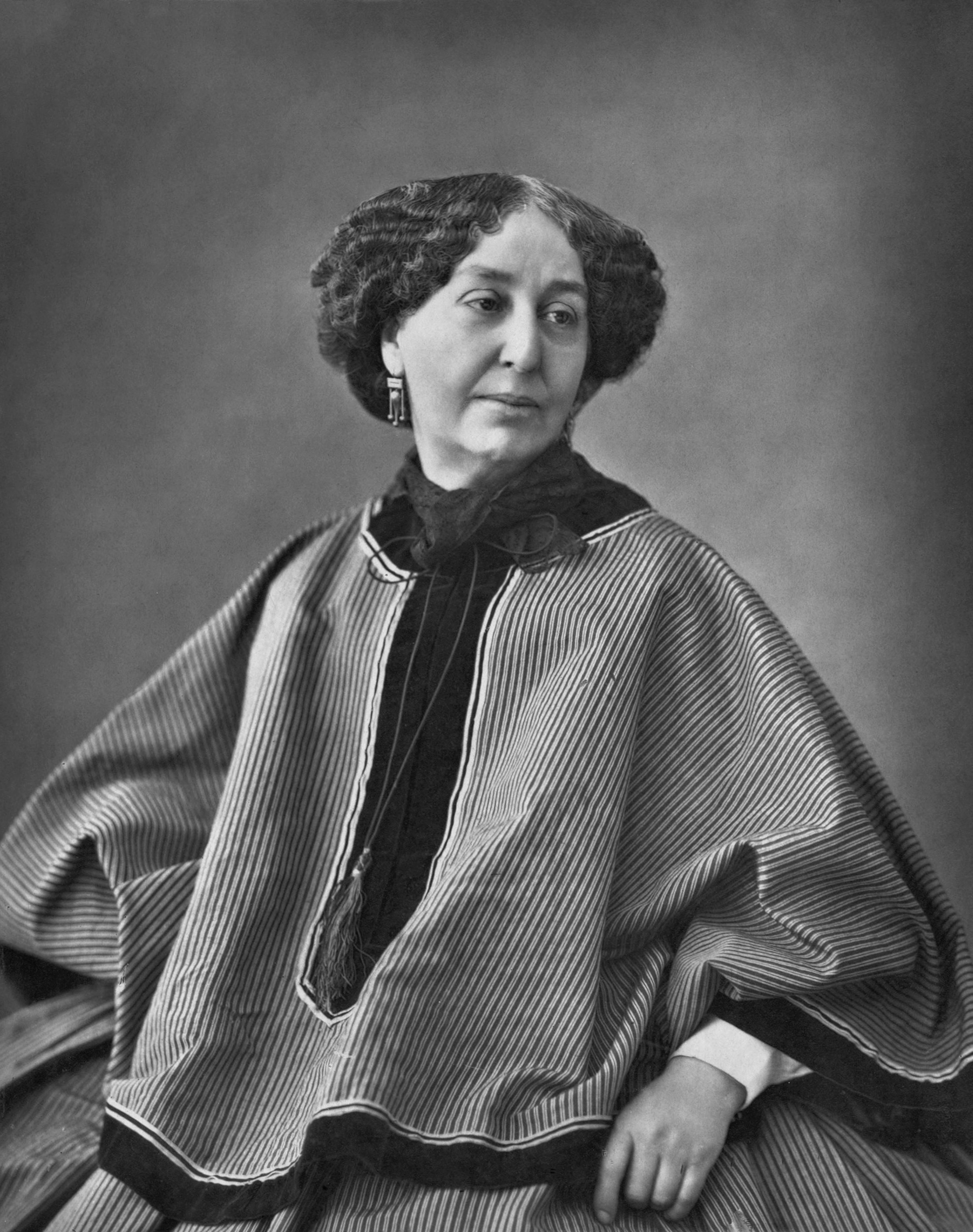Sand, George (1804-1876), was the pen name of Amantine-Aurore-Lucile Dupin, a French novelist of the 1800’s. Her work was admired by the greatest writers of her time. After her death, Sand’s writing went out of style, and she was remembered only for her shocking lifestyle and her love affairs with the composer Frédéric Chopin and the poet Alfred de Musset. She defied social convention by smoking cigars and wearing men’s clothes. Since the emergence of the women’s movement in the mid-1900’s, Sand’s work has been rediscovered, and she has attracted critical attention as a novelist and autobiographer.

Sand was born on July 1, 1804, in Paris and grew up in the tiny village of Nohant. She went to Paris in 1831 to write. Her many works can be divided roughly into four periods. Her first works were novels of romantic passion, notably Indiana (1832), Valentine (1832), and Lélia (1833). These novels protest against the socially defined condition of women and reflect her own emotional desires and disappointments. They plead for a woman’s right to sincere love and to lead her own life. Beginning about 1840, Sand expressed her concern with social problems in such novels as Consuelo (1842-1843). In the mid-1840’s, she wrote original novels of life in the French provinces. These include The Devil’s Pond (1846), François the Waif (1848), and Little Fadette (1849). Her later writings include two volumes of children’s stories, A Grandmother’s Tales (1873, 1876).
Sand was also a playwright, travel writer, and journalist. Today, her memoirs and correspondence are among her most interesting works, especially The Story of My Life (1854-1855). She died on June 8, 1876.
See also Chopin, Frédéric François; Musset, Alfred de.
